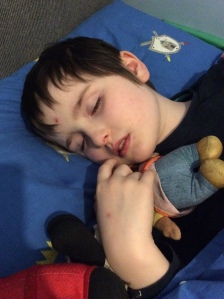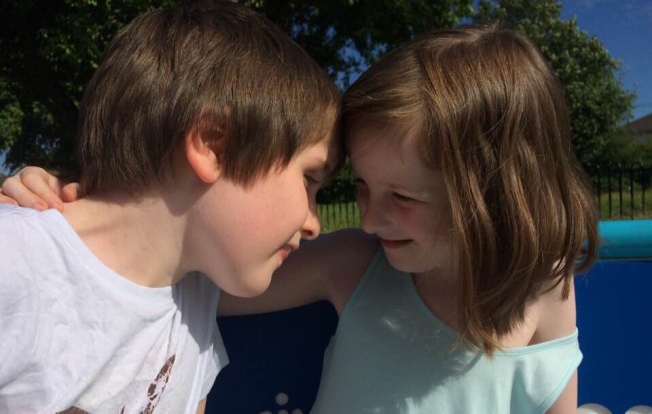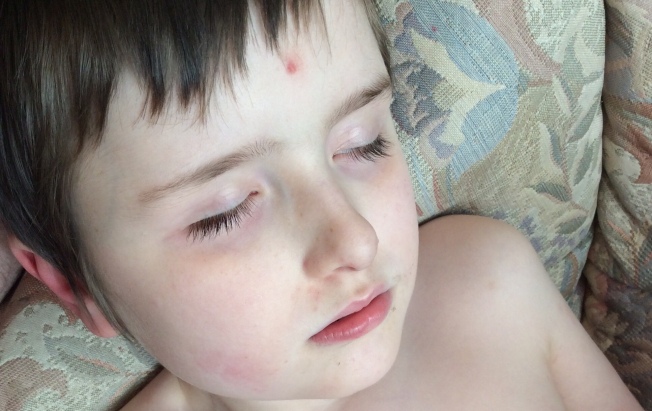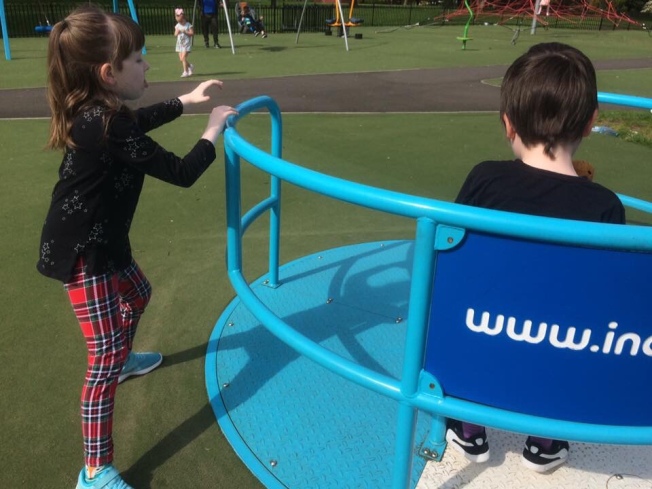 Even before my children were diagnosed as being on the autism spectrum I could see that they were struggling with certain things. The truth of the matter is we all struggle with different things in life and we all have strengths and weaknesses.
Even before my children were diagnosed as being on the autism spectrum I could see that they were struggling with certain things. The truth of the matter is we all struggle with different things in life and we all have strengths and weaknesses.
When I researched autism I could see so many of the difficulties my children had fitted with the diagnosis like not giving eye contact, not responding to their names, having repetitive play or movements, struggling with communication (speech in particular), and not understanding the play and actions of their peers. However some of the things they struggled with seemed initially to be unrelated to autism but are in fact much more common among those on the spectrum than those who are not. The following everyday skills are not part of the criteria for autism and neither are they things that every child with autism will struggle with but if you have a child on the spectrum you may relate to some of these struggles with your child too.
1. Blowing their nose.
Over the years on autism support groups (online and in person), this seems to be a common struggle for many children on the spectrum. There seem to be a number of reasons why this skill can be hard to learn including understanding the concept, sensory issues and developmental delays. My twins are now 9 and still neither of them understand or have the ability to blow their own noses! For my son the whole ability to understand and follow instructions is a huge struggle and for his sister it’s much more sensory and developmental.
Some tips for helping your child (preferably when they don’t actually need to blow their nose so they can avoid the added grossness of snot!) develop this skill are:
* Using a straw to practice blowing so they understand the terminology,
* Encouraging blowing from the nose gently with the mouth closed.
* Making nasal sounds like ‘Choo’ from the nose rather than the mouth.
* Use a smell that could endure sneezing such as pepper (though always do this under very close supervision)
2. Tying Shoelaces.
It should be noted this skill is not usually developed by any child until around the age of 7 or 8 though for children on the autism spectrum is is often much later. This is due to so many factors such as fine motor control difficulties, sequencing difficulties, co-ordination difficulties and sensory issues involved in pulling the laces tight enough.
If your child is struggling with this don’t panic. Here are a few tips to help:
* Try showing them from behind them as showing on your own shoes will actually be a mirror image of what the child needs to do and this could cause the child to become confused.
* Use visuals to follow showing what the laces look like throughout the process therefore breaking down the language issue and sequencing difficulties.
* Watch YouTube videos of different ways to tie as there may be a way that makes it much easier for your child to grasp independently.
* Invest in self trying laces or elastic laces so that tying isn’t necessary.
* Buy shoes with Velcro or other type fastenings to avoid the need for shoelaces altogether.
3. Hand Writing.
Not every child with autism will struggle to have legible and neat handwriting. My daughter is a perfectionist and her handwriting reflects this, but for many children it is a huge struggle. Some of the reasons for this are lack of motivation, fine motor difficulties, sensory issues with holding writing utensils, processing speed and sometimes other learning difficulties such as dyslexia. Some ways you can help your autistic child with this include:
*Use technology to help but having apps that include letter formation and encourage the child to use a stylus in the same way they would use a pencil or pen.
* Make it fun by playing games or drawing pictures to take the pressure off the child.
* Allow the child to type instead of using handwriting for some tasks so as not to inhibit their creative expression too much by taking the onus off the physical ability to write and onto the actual content. (As adults how often do we actually hand write now?)
* Experiment with different media and materials such as pens, crayons, or paint, to help bypass any sensory issues.
* Stay encouraging! While handwriting is a skill we all need it is less essential than ever for future employability these days.
4. Continence related issues. 
Many children struggle silently with continence related issues and many parents are embarrassed to talk about things like bed wetting. While some children, both autistic and neuro-typical, may sail through potty training many will struggle. It is ‘normal’ for many children on the spectrum to have a delay of some sort in this area either by not being developmentally ready in line with their peers, having huge anxiety about one or several areas of the task, having sensory issues around bathrooms or underwear, or struggling with the social awareness of it all. Don’t panic if your child is one of those struggling and don’t feel you are alone. Here are some ideas that may help, though if you feel there could be any underlying medical issues or if something has recently changed with toilet training in any way do seek medical support.
*Try using visual schedules outlining the stages involved in the skill from understanding the need, sitting on the toilet, cleaning up and pulling clothing back up. It may take much longer for someone on the spectrum to sequence naturally so be patient.
* Eliminate any obvious sensory issues or barriers by having something for the child’s feet to rest on while on the toilet so they don’t feel they will fall, empty any smelly bins, having the room calm and tidy and if using a public toilet try and find one without noisy hand dryers if this is a trigger.
* Go often and make trips more routine rather than waiting until urgent. Many children on the spectrum thrive with routine so having regular routine visits can take away stress.
* If your child is socially nervous having a card or code they can use to be excused from school lessons to go could make things easier than having to get the teacher’s attention and communicate the need verbally, all of which can be immensely stressful for some autistics.
* Don’t expect a smooth ride! Change in routine, high anxiety, family change in circumstances and even hormone changes can affect toilet training so much.
* Be respectful always. Don’t laugh at accidents or mention struggles in this area with your child as it could damage their self esteem.
5. Sleep.
No-one told me my son’s severe difficulties with sleep could in any way be related to his autism! A quick google or chat to parents of autistic children and it isvery obvious just how common sleep issues are for anyone with autism. These issues range from inability to settle to sleep, inability to stay asleep or inability to get back over to sleep therefore waking extremely early. Sleep is vital for our mental and physical health and lack of it can have significant effects such as memory loss, fatigue, ill health, poor diet, inability to focus, irritability, mood swings and weight gain. There are a number of key reasons why it is thought autistic children and adults find sleep a struggle and these include anxiety, sensory issues (around clothing, bedding, lights and noise), hormone issues, lack of time awareness and different bodily needs. My son can function very well on four or five hours sleep for example while I can’t!
Some ideas to help your child with sleep:
*Having a clear routine to help establish time and expectations.
* Using visuals such as a grow clock or nightlights.
* Physical and environmental factors such as black out blinds and toy free bedrooms to remove distractions.
* Background noise such a while noise (hoovers/fridges/freezers etc) which can be calming for some or perhaps quiet, peaceful music.
* Technology free time before bed to avoid stimulating the mind too much prior to sleeping.
* Some parents choose to use natural products like lavender oil or prescription medication from paediatric doctors such as melatonin.
These are just five things I was surprised my autistic children struggle with and I could have picked so many others like riding a bike, regulating their body temperature, and even dressing themselves.
Don’t underestimate your child though. If there is one thing my children have taught me about autism it is this: they may struggle in some areas but they excel in others and they bring me untold joy daily.
Have you related to any of this? Feel free to share!
 Dear Isaac,
Dear Isaac,




 I am a parent of a non verbal child. He has always been that way and possibly always will. It’s our ‘normal’, so much so that I often forget when others look at my son or ask him a question that they have no idea he can’t speak. Sometimes I want to tell the world everything about him, because he can’t do so for himself. Other days I want to keep everything about him private and locked into my heart because…well mostly because people, sadly, can be very ignorant.
I am a parent of a non verbal child. He has always been that way and possibly always will. It’s our ‘normal’, so much so that I often forget when others look at my son or ask him a question that they have no idea he can’t speak. Sometimes I want to tell the world everything about him, because he can’t do so for himself. Other days I want to keep everything about him private and locked into my heart because…well mostly because people, sadly, can be very ignorant.


